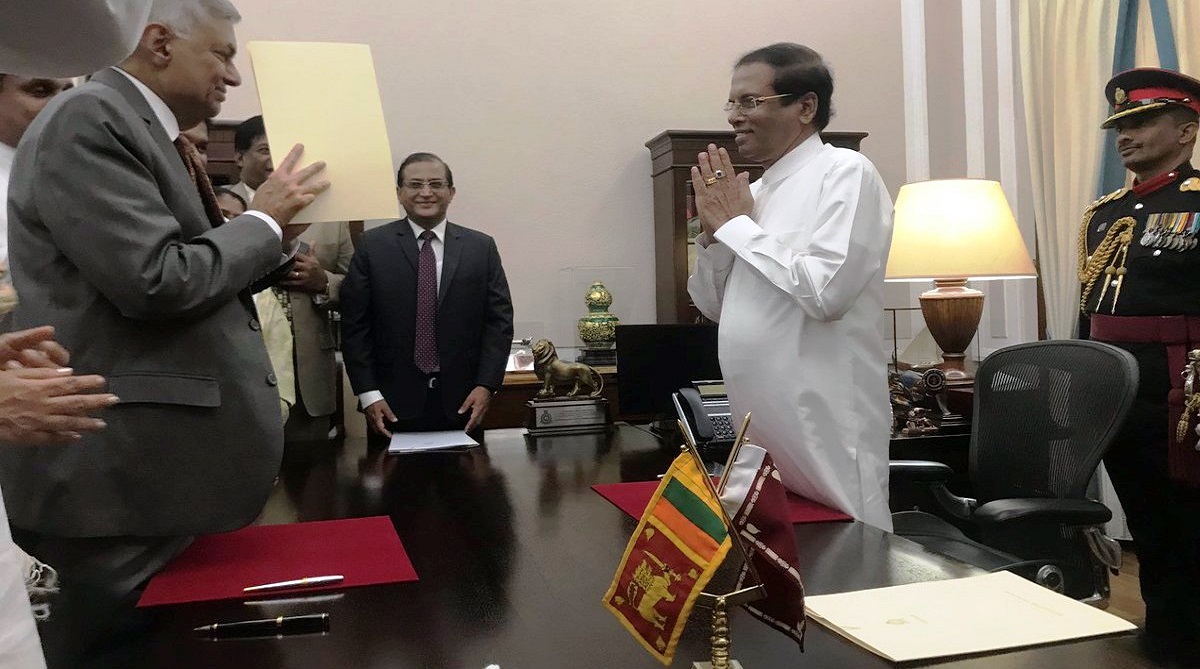Asia Cup: India-Pakistan match halted in Colombo due to heavy rain; Rohit, Gill slam fifties
The India-Pakistan Super Four match in the Asia Cup has been temporarily halted due to heavy rain at the R.…
This comes after Mahinda Rajapakse resigned on Saturday as Prime Minister after he was appointed the PM by Sirisena following Wickremesinghe’s dismissal on October 26.

Ranil Wickremesinghe was on Sunday sworn in again as the Prime Minister of Sri Lanka by President Maithripala Sirisena. (Image: Twitter/@HarshadeSilvaMP
After being sacked from the post of Prime Minister of Sri Lanka in October, Ranil Wickremesinghe was on Sunday sworn in again as the Prime Minister by President Maithripala Sirisena. With this move, a nearly two-month political crisis which broke out in the island nation has come to an end.
Ranil Wickremesinghe is the leader of the ruling United National Party (UNP). He took his oath of office at the Presidential Secretariat in the capital Colombo as reported by Colombo Page.
The Cabinet of Ministers will be sworn in on Monday.
Advertisement
“Today marks a victory not for myself or for the UNP. It is a victory for Sri Lanka’s democratic institutions and the sovereignty of our citizens. I thank everyone who stood firm in defending the constitution and ensuring the triumph of democracy,” tweeted Wickremesinghe after the swearing in.
This comes after Mahinda Rajapakse resigned on Saturday as the Prime Minister after he was appointed by Sirisena following Wickremesinghe’s dismissal on October 26.
On Wednesday, Parliament passed a vote of confidence in Wickremesinghe as Prime Minister.
The Supreme Court ruled on Thursday that Sirisena had acted illegally in November by dissolving Parliament and calling snap polls nearly two years ahead of the next elections.
Following the ruling of the Supreme Court, Wickremesinghe had tweeted, “We trust that the President will promptly respect the judgment of the courts. The legislature, judiciary, and the executive are equally important pillars of a democracy and the checks and balances that they provide are crucial to ensuring the sovereignty of its citizens.”
We trust that the President will promptly respect the judgment of the courts. The legislature, judiciary, and the executive are equally important pillars of a democracy and the checks and balances that they provide are crucial to ensuring the sovereignty of its citizens.
— Ranil Wickremesinghe (@RW_UNP) December 13, 2018
(With IANS inputs)
Advertisement